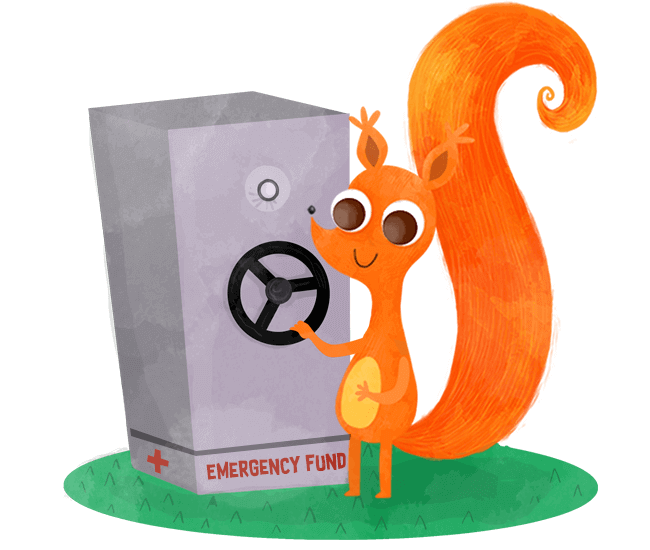
First-time homebuyers face a lot of financial pressures. There’s the rush to save for a down payment, the inevitable legal fees that come with purchasing a home, and the cost of moving, to name a few.
But there’s an additional financial pressure that many new homeowners find themselves under, and that’s the cash crunch in the early days after getting the keys to their new home. It’s not uncommon for first-time homebuyers to have little money left over when all is said and done. This can create a lot of stress and turn the joy of a new home into a time of tremendous anxiety.
That’s why, in addition to all the saving you’ve done to buy your first home, you should also put some effort into beefing up your emergency fund. Traditionally, experts have recommended saving the equivalent of three months’ salary for an emergency. That might seem like a stretch, but as you prepare to make the biggest purchase of your life, you should consider saving even more than that for an emergency. Here’s why:
When I bought my first home, the first thing I noticed was the bills. In the first year I got a steady stream of letters from various organizations demanding money for this or that. Just about every utility that serviced the home had an account transfer fee. Even the municipality charged a change of ownership fee for my property taxes.
Then there’s the chance of unexpected surprises that happen on closing. I’ve heard horror stories of sellers who took all the light bulbs in the house with them, or left the home full of garbage that needed to be hauled away. Chances are most of these expenses will be relatively small, but having a solid emergency fund will help keep these annoyances from becoming disasters.
When you own a home, there’s no landlord to call when things go wrong. And, unless your new home is newly constructed, there’s no warranty.
The minute you get your keys, the home – and everything in it – is 100% your responsibility. Things will break, and it’s possible that a major component of the house could fail on the first day you own it. Your furnace could fail. So could your air conditioner, water heater, washing machine, dryer, dishwasher, oven or refrigerator. You did buy all those things used, after all.
Insurance won’t help, either. Your home insurance is intended to cover you in the event of a major loss- a fire, theft, or vandalism. It doesn’t protect you against broken down appliances or general wear and tear.
It’s never recommended to be late with your rent payments, and for obvious reasons. Your credit can be damaged, and you can be evicted from your home. You’re almost certain to lose your deposit. And you could be sued for the amount you owe. But the repercussions are fairly self-limiting.
When you own your home, everything is at stake. If you fall too far behind on your mortgage, the lender (or mortgage insurer) can evict you from your home and sell it to recover what you owe them. In provinces with power of sale, money left over after all of their expenses and fees will be returned to you. In provinces with foreclosure, you lose everything no matter what.
In both cases, if the home sale doesn’t cover all of what you owe, you are still liable for the difference. You could have to declare bankruptcy, which has a long-lasting effect on your ability to get credit.
Having a sizeable emergency fund in your savings account can help prevent this situation in a few ways. In the worst-case scenario, an emergency fund can help you keep making mortgage payments while you sell your home on your own terms.
When you buy a home, expect your credit score to take a hit, at least at first. Couple that with having recently moved (and a recent job change, if you’ve moved for work), and you are suddenly no longer an ideal candidate for borrowing money. An emergency fund can help carry you through this period after buying a home when it may be harder to get approved for any type of loan.
Fortunately, this credit interruption will likely be brief. And, if you make all of your mortgage payments on time, your status as a homeowner could actually make it easier for you to borrow money in the future.
Having a robust emergency fund is a good idea no matter who you are, but it’s that much more important when you’re a new homeowner. Having some extra savings can make the transition to ownership easier, and it can make the early days of having your own home a lot less stressful, too.
YOUR FREE FINANCIAL PLAN
The best financial plan is also the easiest.
Build your free plan today.
Start now